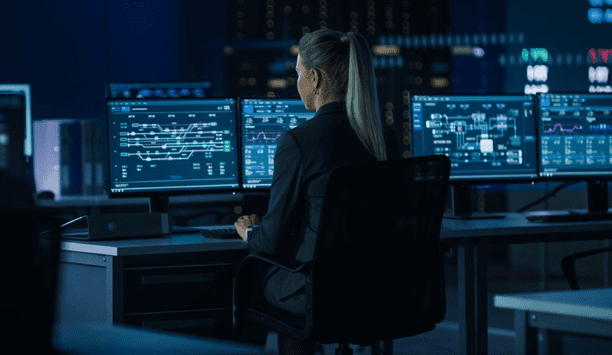Round table discussions
The reviews are in, and ISC West was another hit. Brisk attendance and a comprehensive lineup of the industry’s top companies and products contributed to another successful show for Reed Exhibitions. Our Expert Panel Roundtable, who have attended many such events, added their own reflections to the industry’s post-ISC glow. We asked this week’s Expert Panel Roundtable: How successful was ISC West 2018 for security industry exhibitors and visitors?
A big trade show, such as the upcoming ISC West, has a lot to offer for attendees. How, can attendees maximise the value they get out of ISC West? For advice, we go to our Expert Panel Roundtable, all seasoned veterans of many big trade shows. Specifically, we asked the panel: How can attendees get the most out of a big trade show like ISC West?
The residential/smart home market is undergoing revolutionary transformation, with a flood of new products and technologies helping to make our homes more connected, easier to manage and, yes, smarter. These massive steps forward provide challenges, and also opportunities, for the security industry, which has played a major role in protecting homes and residents for decades. We asked this week’s Expert Panel Roundtable: How are changes in the residential/smart home market impacting securit...
Cloud computing has been around since the turn of the millennium. Over the years, the concept of storing and accessing programs over the Internet (instead of using an on-premises computer system) has grown in almost every realm of business. Some might say the physical security industry has come late to the party, delayed in some instances by (misguided?) concerns about cybersecurity of cloud systems. The bandwidth needed to transfer video to the cloud has also been a challenge. We asked this wee...
The manufacturers behind today’s security technologies are a varied bunch. There are large manufacturers with deep pockets and plenty of resources. And there are smaller manufacturers who are nimble, can react faster to changing market conditions and to whom each customer represents a hard-fought win. There are also plenty of manufacturers in the middle ground. But what impact does the size of a company have on the quality of its products? We took the question to this week’s Expert P...
Among its many uses and benefits, technology is a handy tool in the fantasy world of movie and television thrillers. We all know the scene: a vital plot point depends on having just the right super-duper gadget to locate a suspect or to get past a locked door. In movies and TV, face recognition is more a super power than a technical function. Video footage can be magically enhanced to provide a perfect image of a license plate number. We have all shaken our heads in disbelief, and yet, our indus...
How much does a security system cost? We all know that total costs associated with systems are substantially higher than the “price tag.” There are many elements, tangible and intangible, that contribute to the costs of owning and operating a system. Taking a broad view and finding ways to measure these additional costs enables integrators and users to get the most value from a system at the lowest total cost of ownership (TCO). However, measuring TCO can be easier said than done. We...
In tidying up after a year of Expert Panel Roundtable questions and answers, we came across some previously unpublished responses from our panel. These interesting responses address some of the hottest topics in the industry, from robots and deep learning to the “race to the bottom.” Taken together, the varied comments offer their own range of insights into the evolving physical security market. This week, we highlight some of these assorted Expert Panellist comments submitted over t...
Enterprise customers provide a large, and very lucrative, business opportunity for the physical security market. These customers include big global companies with plenty of revenue to spend and employees and facilities to protect. As a group, enterprise customers also tend to be a demanding lot, requiring systems that are large, scalable, that can operate across a wide geographic area, and that provide top-notch system performance. Enterprise customers set the standards of performance for the en...
The new year presents new opportunities for the physical security marketplace. In many ways, 2018 will undoubtedly see further development of trends we saw in 2017. In fact, some of the trends determining the future of the physical security industry have been in place for many years. However, not every event in 2018 can be foreseen or easily predicted. To be sure, it is sometimes the surprises that keep life interesting! We asked this week Expert Panel Roundtable: What will be the security marke...
The end of the year is a great time to take stock of one’s accomplishments during the year, and to reflect on successes and failures, where we are and where we’re going. 2017 brought a lot of change to the physical security market, but were the changes positive or negative? Our Expert Panelists tend to be a thoughtful and reflective group, so we wanted to get their thoughts and insights at year-end about 2017 in the security market. We asked this week’s Expert Panel Roundtable:...
Body-worn cameras are becoming more common every day, driven both by needs of the marketplace and technology developments. However, questions remain about the usefulness of the devices, and their future role in promoting safety and security. We asked this week’s Expert Panel Roundtable: What are the challenges of body-worn cameras for the security industry?
In recent years, information technology (IT) departments at end user companies have often been seen as adversaries of traditional security departments – or, at least, as a thorn in their side. One of the issues is territorial: As physical security products have migrated to use of Internet protocols and the network infrastructure, the IT and security departments have clashed – erm… make that interacted – more and more often. New realities such as cybersecurity have made i...
It seems there are more “bad things” happening than ever before. We hear news every day of workplace shootings and terrorist attacks, of smash-and-grab thefts and child abductions. Beyond the possible human tragedy involved, such events pose a persistent question to anyone involved in the realm of security: Could we have prevented it? The first step toward prevention is to predict or foresee an event before it happens. Too often, technology enters the picture after the fact, most com...
We have been hearing about smart buildings for more than a decade, but the increasing profile of the Internet of Things (IoT) expands the possibilities for intelligent building systems and makes them even more attainable. Security is often among the “smart” functions of a building, and the capabilities of many physical security systems can contribute in new ways to building intelligence. We asked this week’s Expert Panel Roundtable: What is the impact of “smart buildings&...
Industry standards make it possible for systems and technologies to connect and work together. Standards enable today’s integrated systems. But does adherence to standards stifle innovation? Does the necessity to interface using an industry-wide standard slow down the implementation of newer (and possibly not standards-compliant) capabilities? Or do standards eliminate extraneous variables, empower more integration and encourage greater innovation? We asked this week’s Expert Panel R...
They call it “critical” for a reason. The so-called “critical infrastructure” is composed of the basic services that citizens have come to depend on, and which are necessary to support society and ensure national stability. The term includes high-visibility segments such as airports, refineries, transportation, wastewater, nuclear reactors, electric utilities, pipelines, and more. Because these functions are so critical, the stakes of providing security are higher than fo...
Products are the building blocks of systems and solutions. How those products are combined, and where the integration happens, is a variable in the physical security market. Before the advent of open systems, a single manufacturer typically combined his own products, using proprietary connections, into end-to-end solutions for customers. Open systems undermined that paradigm to some degree and made it possible for customers to pick and choose products from multiple manufacturers to be integrated...
Video systems today offer more capabilities than ever. Consequently, the systems can be used in new ways. For a variety of reasons, however, many customers don’t take full advantage of the capabilities of their video systems and therefore are leaving value on the table. Education and training are tools to alleviate the situation, but the first step is to identify the new ways that video can be used. We asked this week’s Expert Panel Roundtable: How do customers under-utilise their vi...
Companies in fast-moving industries tend to want half or more of their revenue to come from products released in the last three or so years. The logical extension of that philosophy is the demise of product "cash cows" that remain in a company's portfolio for many years. Where better to witness the shortening life cycles of technology products than in the smart phone market, where most of us buy into the hype of the "latest and greatest?" But does acceleration of new product introductions transl...
“Don’t try this at home.” It’s a common warning, but how does it apply to security systems? With today’s systems becoming easier to install, and with customers becoming more tech-savvy, there is a growing market for “do-it-yourself” or DIY home security systems. The trend also extends beyond the home security market: Business end users may also think they can forgo a professional installer and handle installation in-house. The customer may save money by...
Remarkable changes are happening in the video camera market for surveillance applications, including the emergence of lower-priced products that offer features that previously were only available at a much higher price point. Deflating prices of cameras are sometimes referred to as a “race to the bottom” – foreshadowing a market of low-cost cameras that all provide similar features. We asked this week’s Expert Panel Roundtable to comment on camera pricing trends and how c...
Measuring return on investment (ROI) has long presented a challenge to the security marketplace. Investment in security is often viewed as a necessary cost whose benefits cannot be measured. For example, how do you measure the value of an event that doesn’t happen (i.e., that has been prevented)? The difficulty of measuring ROI doesn’t diminish customers’ appetite for it, however. Today’s choosy customers are driven more than ever by the bottom line and expect any and all...
As the new school term begins, awareness of security at all levels of educational institutions is higher than ever. Technology plays an important role in protecting educational facilities and their students, faculty, staff and visitors. Specific security challenges drive which technologies and other measures are used, and those challenges are evolving, along with the dynamic institutions security is tasked with protecting. We asked this week’s Expert Panel Roundtable: What are the security...
Even the most effective technologies usually require some level of human involvement. What new technologies do, generally speaking, is change the nature of a human’s role. Most jobs in today’s world are vastly different than 50 years ago, in many cases because of the changing role of technology. In the physical security world, what specific impact does technology have on the human element of systems? We asked this week’s Expert Panel Roundtable: Have recent developments in secu...
There’s a huge cloud hanging over the physical security market, but in a good way. Cloud-based systems, whether for video, access control or another category, are on the verge of taking the industry by storm. The benefits of that mythical “cloud” are well-known, or certainly well-touted, in the market. It’s almost as if the word “cloud” has become a buzzword that can mean different things, or at least whatever the customer wants it to mean (as long as they buy...
The obvious reason to buy security systems is to promote greater security. But in some cases, there are more specific and/or immediate motivators that lead to a security purchase. Everybody wants more security in the abstract, but how willing are we to pay for it? Security is sometimes seen as a “grudge purchase,” competing for tight corporate dollars with other investments that may seem more appealing or urgent. But other times an event occurs that moves security to the top of the l...
The world of politics, like the world of security, is an environment of constant change. But do changes in one have an impact on the other? Governments around the world are involved in buying a wide variety of physical security systems, so how those governments operate certainly affects how they spend money on security. But in a broader sense, governments (and the associated political forces at work) also impact how their citizens and those in the private sector view threats and, as a logical ex...
Big data is a buzzword, and data – presumably of all sizes – is a driving force in the physical security market. As systems become more sophisticated and expand their capabilities, the result is more data; in some cases, a lot more data. But a key question is: What do we do with the data? How do we use it to provide value? How do we interpret it, and transform it into useful information and/or intelligence? We presented the topic of data to our Expert Panel Roundtable and came away w...
A busy trade show abounds with new products and expanded features, colorful signage and blinking video screens, all competing for attention from busy attendees. It’s a microcosm of how the security marketplace – or any market, for that matter – sells its products. But what happens if the reality turns out different to the sales pitch? What happens when product or system performance doesn’t quite live up to the claims? Some would call that hype, and it can lead to disillus...
Security experts
Expert commentary
Palm vein recognition
DownloadThe key to unlocking K12 school safety grants
DownloadPhysical access control
Download5 surprising findings from OT vulnerability assessments
DownloadHoneywell GARD USB threat report 2024
Download



































































